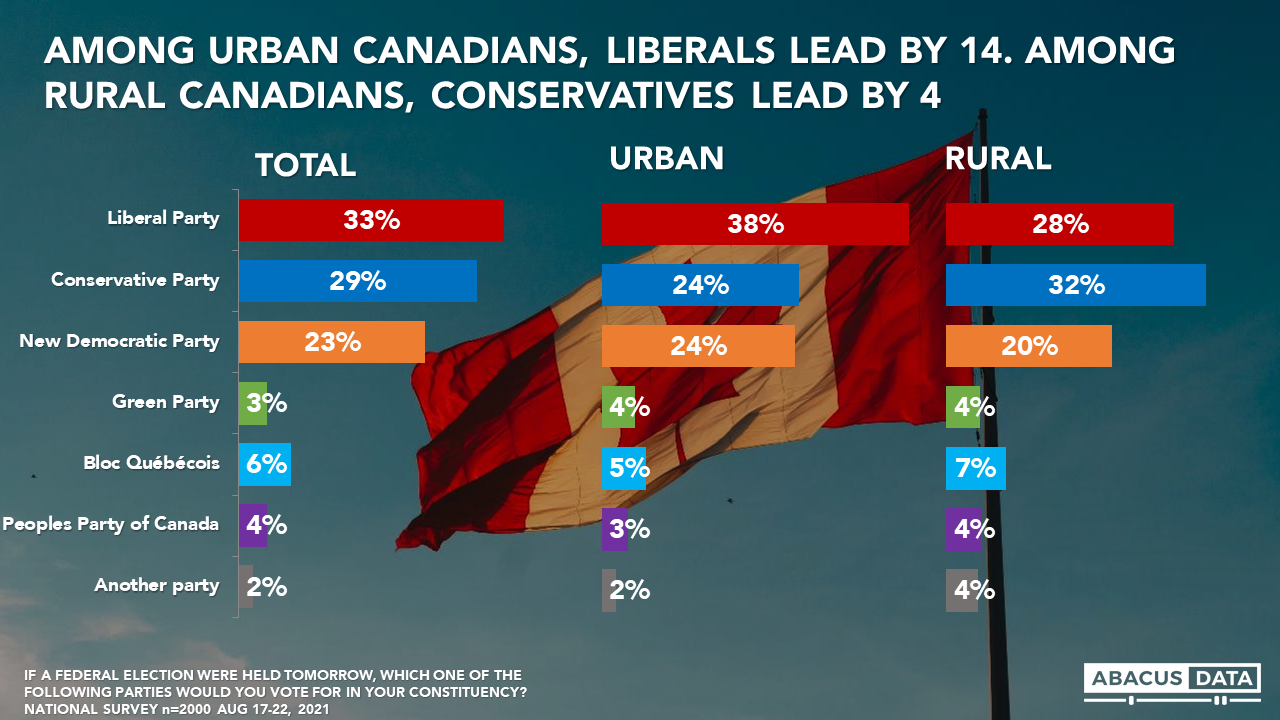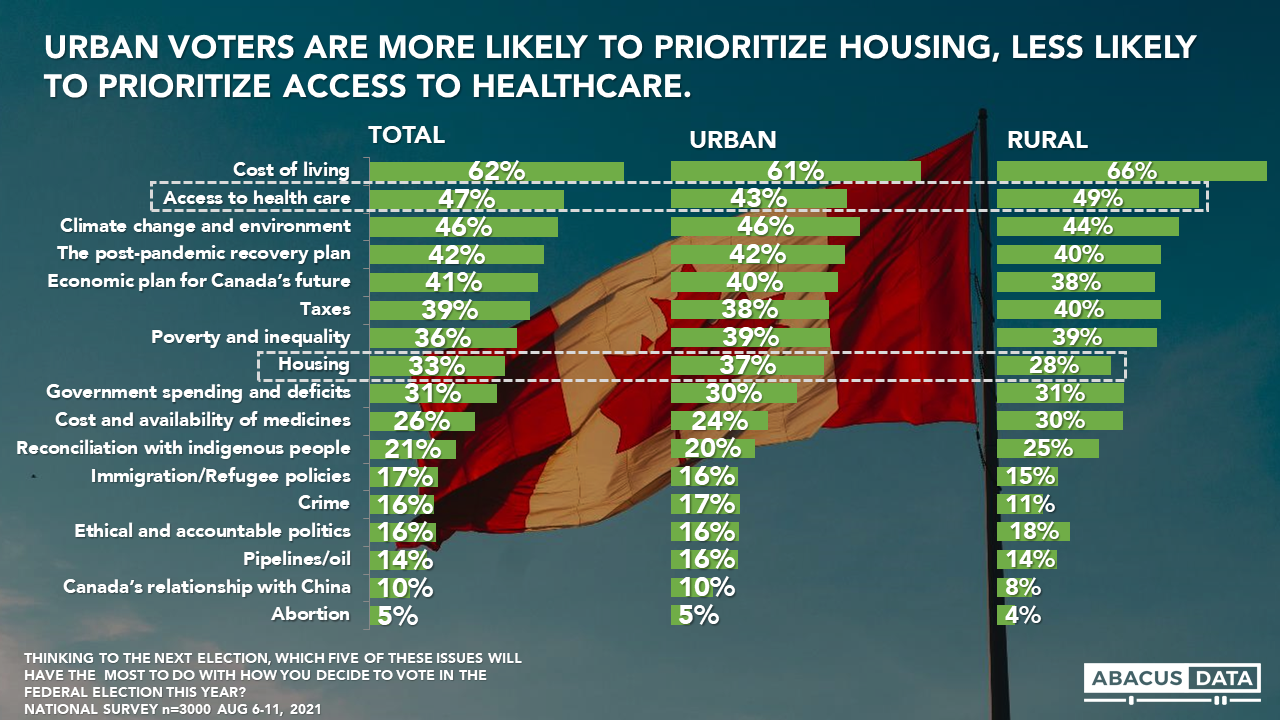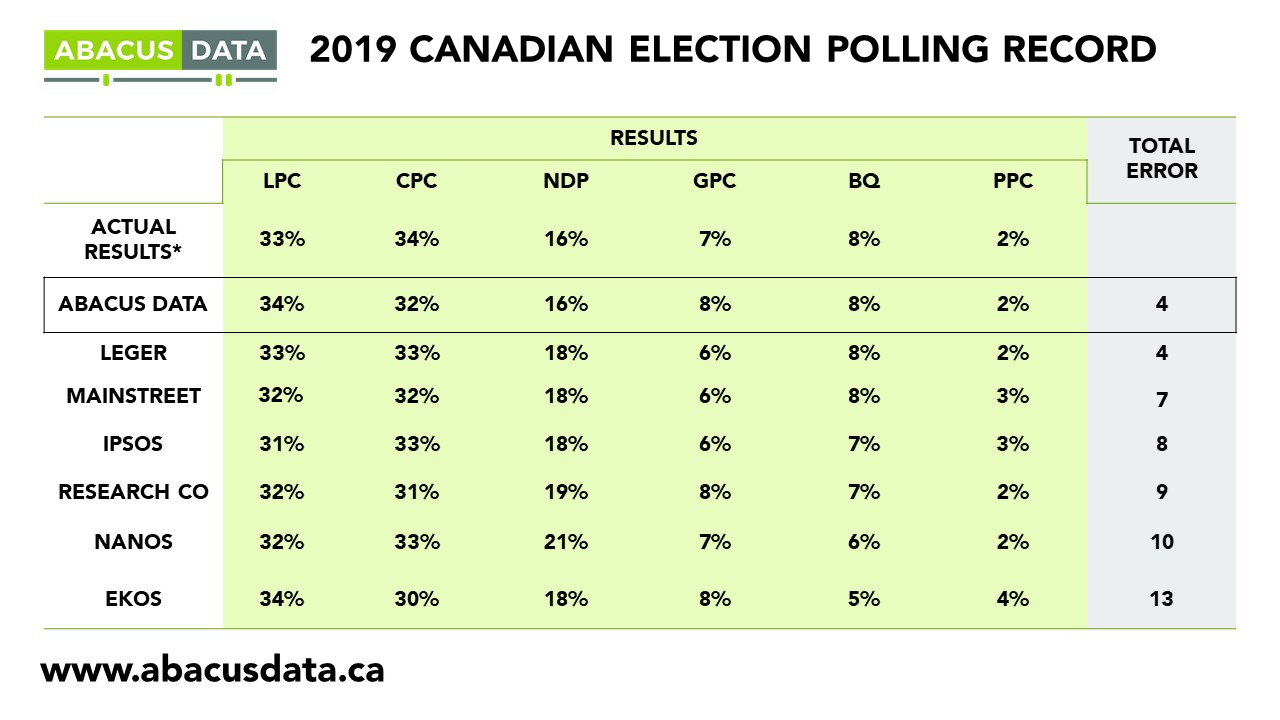Abacus Election Bulletin: Canada’s urban-rural divide
August 25, 2021
Each day during the 2021 Federal Election campaign, researchers at Abacus Data will share insights and analysis from our polling in concise, insights-focused reports. To never miss our polls and analysis, subscribe to our newsletter.
The US has a prevalent urban-rural divide, which often finds itself impacting how individuals vote, with rural voters swaying to the right, and urban to the left. As the federal election kicks off, we’re noticing that this divide is not unique to our southern neighbours. When considering current voter intentions, urban voters are inclined to favour the Liberals, who lead by 14 among this group. However, among rural voters, the Conservative party leads the Liberals by 3.

Furthermore, when we look back at data from Aug 11th, there are very limited differences in the issues that are most likely to drive votes this election. Urban voters are slightly more likely to prioritize housing and are less likely to prioritize access to healthcare than rural voters. With that being said, Urban and Rural voters are relatively consistent on the remaining issues that will drive their vote. Cost of living continues to be the key issue this election, with 62% of Canadians including it in their top 5.

UPSHOT
Although the current vote intention widely differs between the two, it is evident that, here in Canada, we aren’t as divided as we think. Whether urban or rural, Canadians in general find themselves in agreement over the key issues that will drive their vote this election.
Overall, it’s not the differing priorities that define these two groups, but rather how these priorities are expressed. Canadians of all walks of life are a lot more similar than many are willing to believe.
METHODOLOGY
The data in this report come from two surveys.
One was conducted online with 3000 Canadians aged 18 and over from August 6 to 11, 2021 and the other with 2,000 Canadian adults from August 17 to 22, 2021. A random sample of panellists was invited to complete the survey from a set of partner panels based on the Lucid exchange platform. These partners are double opt-in survey panels, blended to manage out potential skews in the data from a single source.
The margin of error for a comparable probability-based random sample of the same size is +/- 1.8% and +/- 2.2% 19 times out of 20, respectively. The data were weighted according to census data to ensure that the sample matched Canada’s population according to age, gender, educational attainment, and region.
Abacus Data follows the CRIC Public Opinion Research Standards and Disclosure Requirements that can be found here: https://

ABOUT ABACUS DATA
We are the only research and strategy firm that helps organizations respond to the disruptive risks and opportunities in a world where demographics and technology are changing more quickly than ever.
Find out more about what we are doing to help clients respond to the COVID-19 pandemic.
We are an innovative, fast-growing public opinion and marketing research consultancy. We use the latest technology, sound science, and deep experience to generate top-flight research-based advice to our clients. We offer global research capacity with a strong focus on customer service, attention to detail and exceptional value.
We were one of the most accurate pollsters conducting research during the 2019 Canadian Election.

Contact us with any questions.
Find out more about how we can help your organization by downloading our corporate profile and service offering.


